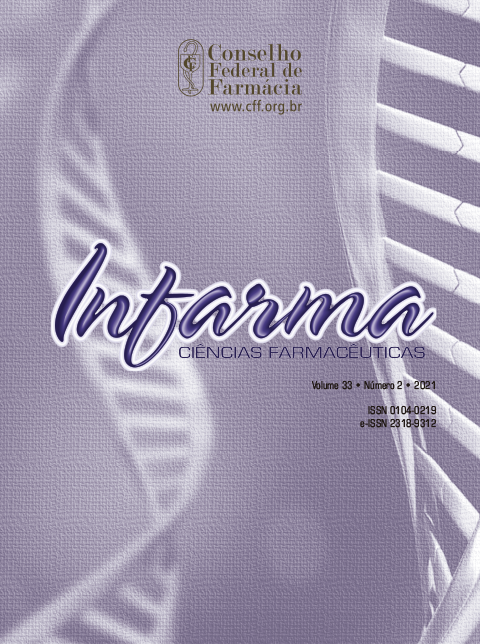PHARMACEUTICAL ASSISTANCE IN PRIMARY HEALTH CARE FROM THE VIEWPOINT OF PRESCRIPTORS AT A COUNTY OF EASTERN SERIDÓ POTIGUAR
DOI:
https://doi.org/10.14450/2318-9312.v33.e2.a2021.pp175-187Keywords:
primary health care, pharmaceutical services, prescriptions.Abstract
This study aimed to evaluate the perception of prescribers of Primary Health Care drugs in Currais Novos, RN, Brazil about Pharmaceutical Assistance, through a cross-sectional, with quantitative approach study. Data collection took place via an instrument adapted from the National Research on Access, Use, and Rational Use of Medicines methodology. Of the 34 professionals, 41.18% were physicians and 58.82% dentists, with a prevalence of females (55.88%). The prevalent employment contract was the contract (32.35%) under a 40-hour weekly regime (55.88%). Most prescribers (73.52%) knew about the Standardized List of Medicines (73.52%); however, 61.77% of these never participated in its elaboration and 61.76% did not know the procedure to request inclusion and/or exclusion of drugs in the list. Medication protocols and access to the Drug Information Center were not a reality (73.54% and 2.94%, respectively). Adoption of the Brazilian Common Denomination was cited by 52.94% of the respondents. Information on medicines availability at the County pharmacy was referred to as usual (70.59%), and when the prescribers identified a lack of them, they used to substitute in the prescription (76.47%). Patients’ adherence to the prescription was prevalent for respondents (55.89%). However, the technical complaints and adverse drug events notification were low (14.71%). The prescribers’ evaluation about pharmaceutical assistance activities presented positive points and others that can be improved. Therefore, it is necessary to bring the prescribers closer to this practice via interprofessional work.
Downloads
Published
How to Cite
Issue
Section
License
Authors who publish in this journal agree to the following terms:
- Authors retain the copyright and grant the journal the right of first publication, with the work simultaneously licensed under the Licença Creative Commons Attribution which allows the sharing of work with acknowledgment of authorship and initial publication in this journal.
- Authors are authorized to take additional contracts separately, for non-exclusive distribution of the version of the work published in this journal (e.g. publish in institutional repository or as a book chapter), with acknowledgment of authorship and initial publication in this journal.
- Authors are allowed and encouraged to publish and distribute their work online (e.g. in institutional repositories or on their personal page) at any point before or during the editorial process, as this can generate productive changes as well as increase the impact and Citation of published work (See O Efeito do Acesso Livre ).


